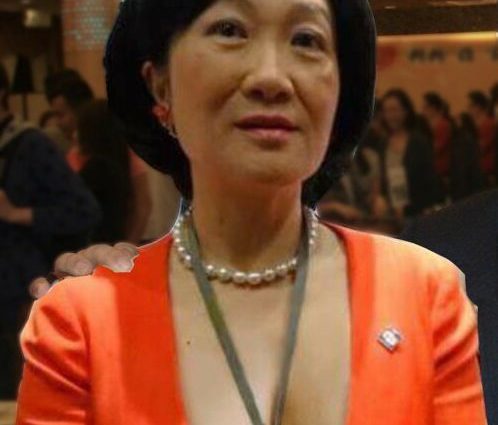Why does it matter that a Chinese blogger who uses the pen name “Jing Haihou” says local officials and lawmakers must take actions to maintain Hong Kong’s unique advantage of “two systems” in order to attract investments and encourage those who left the city to come back?
What makes that important is that Jing is understood to be representing the view of Beijing’s political elites when he blasts the Hong Kong government for overzealously enforcing the 2020 National Security Law and thus scaring off foreign investors.
The timing is also significant: Jing’s comments follow the July 6-9 visit to Beijing of US Treasury Secretary Janet Yellen, a dovish US politician. Washington and Beijing had resumed high-level trade talks after US Secretary of State Antony Blinken met Chinese President Xi Jinping on June 20.
“Since the implementation of the National Security Law, some people, including officials and lawmakers, have used the law as a trump card to promote their policies and a shield to hide their responsibility for policy failures,” Jing says.

He says some officials implemented the government’s decisions without deep thought – for example, by removing Chinese writer Lu Xun’s books from public libraries and banning non-political films. Lu Xun is the pen name of China’s liberal novelist Zhou Shuren (1881-1936), whose books are still permitted to be circulated in mainland China.
Jing complains that some people don’t listen to rational criticism, have leftist mindsets and always mix up “contradictions among the people” and “contradictions between ourselves and the enemy.” He says the misuse of the National Security Law is not what the central government wants to see under its principle of “patriots administering Hong Kong.”
He also says connecting Hong Kong with the outside world is a prerequisite for China to keep developing while maintaining a diversified culture. A global network is the only way that Hong Kong can strengthen its status, he says, concluding that “diversification means more gold,” a reference to foreign investments.

Jing’s comments were reported by the Singtao Daily, a pro-Beijing Hong Kong newspaper, on July 11. Pro-Beijing politicians in Hong Kong were initially shocked by those comments. But they then said they agreed with them – a sign of recognition that Jing’s views reflect those of Beijing’s top leaders.
Regina Ip, convenor of the Executive Council, also said Hong Kong should avoid losing its uniqueness or becoming just another city like many on the mainland.
Lau Siu-kai, an advisor of the Chinese Association of Hong Kong and Macau Studies, said safeguarding national security remains Hong Kong’s top priority but the government needs to take care of foreign investors’ and local people’s concerns about freedoms and human rights.
Sam Ng, a Hong Kong commentator, said Beijing now realizes that tight control on Hong Kong does not fulfill its goal to attract foreign investments. However, Ng said, it has remained unclear what Beijing will do next.
In the first five months of this year, China’s foreign direct investment fell 5.6% from a year ago. For decades, most foreign investments have been entering mainland China through Hong Kong.
Hong Kong’s trade offices
Even if Beijing now reviews its Hong Kong policy, it may be a bit too late as the US Congress is a step closer to approving a bill that will grant the US government the power to review the status of or even shut down the Hong Kong economic and trade offices (HKETOs) in Washington, DC, New York and San Francisco.
In February, US Senators Marco Rubio and Jeff Merkley reintroduced the HKETO Certification Act to reevaluate the United States’ recognition of HKETOs. US Congressmen Chris Smith and Jim McGovern also introduced companion legislation in the US House of Representatives.
On July 13, the Senate Committee on Foreign Relations passed the Act, which needs to be approved by both houses of Congress and signed by the president to become law.
“Hong Kong is unfortunately neither autonomous nor democratic as China’s genocidal regime continues to undermine the city’s basic freedoms,” Rubio said in a statement. “HKETOs no longer merit diplomatic immunities in our nation. As such, their privileges must be revoked.”
“The sad reality,” said Merkley, “is that the HKETOs now serve as propaganda arms of the Chinese government. Committee passage of this bipartisan bill is a strong step forward in defense of the people of Hong Kong.”
The Hong Kong government strongly condemned the US Senate Committee for passing the Act and interfering in the affairs of Hong Kong. It said it will continue to implement the National Security Law resolutely, fully and faithfully.
“A small number of politicians in the US ignored Hong Kong people’s unanimous demands for stability, progress and development and the international community’s common interests in Hong Kong,” an unnamed spokesperson at the commissioner’s office of China’s Foreign Ministry in Hong Kong said on July 14.
“They deliberately passed evil laws related to Hong Kong and politicized economic and trade issues to serve their own political self-interest,” the spokesperson said. “This conceals their evil intention of ‘containing China with Hong Kong,’ and exposing their bullying and hegemony.”
The current National Security Law forbids acts of secession, subversion, terrorism and collusion with foreign forces.
Last month, Chief Executive John Lee said Hong Kong will pass another security law in accordance with the Basic Law’s Article 23 this year or in 2024. The new law will cover acts of treason, sedition, theft of state secrets and foreign bodies’ conducting political activities in the city.
In early June, Beijing called on the US to allow Lee to attend the APEC summit that will be held in San Francisco later this year. Lee was sanctioned by the US as he had led the police force’s crackdown on the anti-extradition protests in late 2019 and early 2020.
Read: China’s June exports hit by weak Western demand
Follow Jeff Pao on Twitter at @jeffpao3

